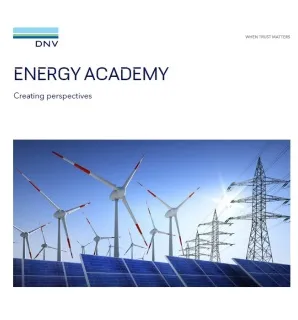Economic Regulation and Gas Tariff Setting training course
This training course explores the principles underlying economic regulation including the regulatory fundamentals, price and quality regulation methods, as well as the routines to set revenue and tariff for regulated services.
Economic regulation is needed in areas where no functional competition is possible. For example, gas networks constitute a natural monopoly and requires regulation to limit monopoly pricing and to set incentives for efficient performance.
Other activities like production / import, storage and supply, which are not natural monopolies, can become de-facto monopolies due to various limitations, and may also require regulation. For example, the provision of such services is potentially contestable given the presence of multiple providers in the specific relevant market. However, the competitive provision of such services in response to market demand may be limited due to due to specific legal requirements, limited market size, limited number of companies or existence of operational constraints.
Course Content
This training course covers six focus areas (listed below), which touch upon topics related to economic regulation and gas tariff setting. All modules build up on each other and guide participants step-by-step through the content:
- Regulatory fundamentals (areas, scope and methods of regulation)
- Determination of the allowed revenue
- Cost of capital
- Efficiency analysis
- Quality of supply regulation
- Gas pricing
For each module, the conceptual concepts are firstly provided then accompanied by examples and practical exercises.
Your Benefits
Upon completion of the course, participants will:
- understand the regulatory fundamentals and obtain an enhanced understanding of the price regulation methods
- become familiar with the technical details used in the regulatory revenue settings, cost of capital, efficiency analysis and quality of supply regulation
- be trained in the area of gas pricing including servicing the whole value chain in the gas industry.
The conceptual part of the training will be supported by comprehensive practical exercises throughout the course.
For Whom?
Everyone involved in regulated gas industry e.g. employees of regulated companies, investors, representatives of industry associations, staff of regulatory authorities, officials from policy making institutions.
Our Course Offer
This training can be conducted both as classroom training and via online facilities. The duration of the training is foreseen to be a 4-day classroom or a 5-day online training but can be customized to meet your needs.
Economic regulation is needed in areas where no functional competition is possible. For example, gas networks constitute a natural monopoly and requires regulation to limit monopoly pricing and to set incentives for efficient performance.
Other activities like production / import, storage and supply, which are not natural monopolies, can become de-facto monopolies due to various limitations, and may also require regulation. For example, the provision of such services is potentially contestable given the presence of multiple providers in the specific relevant market. However, the competitive provision of such services in response to market demand may be limited due to due to specific legal requirements, limited market size, limited number of companies or existence of operational constraints.
Course Content
This training course covers six focus areas (listed below), which touch upon topics related to economic regulation and gas tariff setting. All modules build up on each other and guide participants step-by-step through the content:
- Regulatory fundamentals (areas, scope and methods of regulation)
- Determination of the allowed revenue
- Cost of capital
- Efficiency analysis
- Quality of supply regulation
- Gas pricing
For each module, the conceptual concepts are firstly provided then accompanied by examples and practical exercises.
Your Benefits
Upon completion of the course, participants will:
- understand the regulatory fundamentals and obtain an enhanced understanding of the price regulation methods
- become familiar with the technical details used in the regulatory revenue settings, cost of capital, efficiency analysis and quality of supply regulation
- be trained in the area of gas pricing including servicing the whole value chain in the gas industry.
The conceptual part of the training will be supported by comprehensive practical exercises throughout the course.
For Whom?
Everyone involved in regulated gas industry e.g. employees of regulated companies, investors, representatives of industry associations, staff of regulatory authorities, officials from policy making institutions.
Our Course Offer
This training can be conducted both as classroom training and via online facilities. The duration of the training is foreseen to be a 4-day classroom or a 5-day online training but can be customized to meet your needs.


